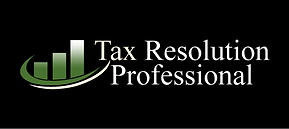When filing your taxes, one misstep and you might find yourself facing tax penalties and interest that can quickly accumulate, adding strain to your financial situation. This article aims to demystify tax penalties, how they accumulate, and ways to minimize or avoid them.
One thing to note is that the IRS charges interest (currently at 8%!) on penalties, making these penalties on top of your original tax debt that much more costly.
To get out of this situation you need a qualified tax resolution expert on your side, fighting on your behalf and negotiating with the IRS. If you find yourself owing $10,000 or more to the IRS or state, reach out to our tax resolution firm for a free consultation [insert your contact page link].
Lets jump into the types of penalties the IRS can assess on top of your tax debt.
Common Tax Penalties
Failure-to-File and Failure-to-Pay Penalties often go hand in hand. Failing to file your tax returns on time or failing to pay your owed taxes can lead to these penalties. Among the two, the failure-to-file penalty is usually more severe, underscoring the necessity of filing your tax returns even if you are unable to pay the owed taxes immediately.
Accuracy-Related Penalties are triggered when there are discrepancies in the income reported or errors in the tax returns filed. This category includes negligence, substantial understatement of tax, and overvaluation of property claims. These penalties emphasize the importance of accurate and honest reporting.
When a check issued to the IRS bounces, a Penalty for Bad Checks or Electronic Payments is levied based on the amount of the check.
Employers are required to withhold and remit employment taxes to the IRS. Late Payment of Employment Taxes can result in penalties that escalate over time. Employers are required to pay these taxes in the right amount, on time, and in the right way. Failure to do so can be costly, starting at 2% but going as high as 15% depending on the timeline.
Self-employed individuals or those with other non-wage income are required to make estimated tax payments throughout the year. A Penalty for Underpayment of Estimated Tax may be assessed if these payments are not made or are insufficient.
The Accumulation of Penalties
Tax penalties can have a compounding effect over time. For instance, the failure-to-file penalty starts accruing from the day after the tax filing deadline and grows with each month the return remains unfiled, until the penalty reaches its maximum limit. The same mechanics apply to other penalties like the failure-to-pay penalty, which underscores the importance of addressing tax issues promptly to prevent an accumulation of penalties.
Strategies to Minimize or Eliminate Tax Penalties
Filing on time is a simple yet effective strategy to avoid the failure-to-file penalty. Even if you can’t pay your taxes, filing on time can save you from one penalty.
Utilizing payment plans offered by the IRS can help manage tax debts in a structured manner, thereby avoiding the failure-to-pay penalty. These installment agreements allow taxpayers to pay their tax debts in manageable monthly installments.
If full payment is not possible, paying as much as you can by the due date can reduce the total penalties and interest accrued. This proactive step can also demonstrate good faith, which may be beneficial in negotiations with the IRS.
Engaging a tax relief professional can provide valuable insights into your tax situation, helping to make informed decisions that minimize penalties. Their expertise can be instrumental in navigating the complex tax landscape.
The IRS might provide penalty abatement for reasonable cause or under the first-time penalty abatement policy. It’s worthwhile to explore this option, and a tax professional can guide you on the eligibility criteria and the process involved.
Tax penalties can add a significant burden, but with a proactive approach and a solid understanding of tax regulations, they can be minimized or avoided. Engaging a tax relief professional can provide personalized advice and assistance, ensuring you remain compliant while minimizing your tax burden.

